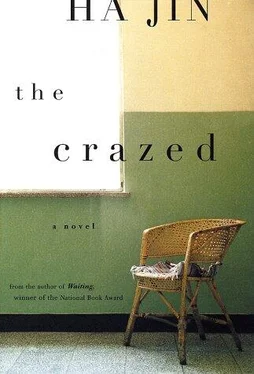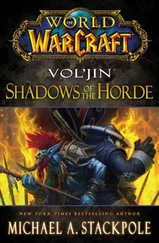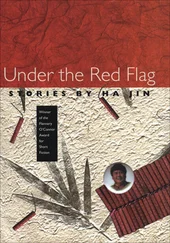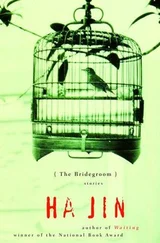A crew from Shanning Film Studio was staying at the guesthouse. They had come to this mountainous area to shoot a movie. The two young fellows sharing the room with me were cameramen on the team. They told me they were making a movie about the historical figure Heng Zhang, who had been an upright official and an expert in earthquake forecasting in the Han Dynasty, about two thousand years ago.
“Why did you pick this place?” I asked the shorter man, who seemed better tempered than his hulking colleague.
“Because this is one of the poorest areas. Look at the landscape.” He waved his squarish hand as if he were sitting in the open air. “Rocky valleys and barren hills, they’re perfect scenery for the movie. The soil’s so poor it looks like even rabbits won’t shit here.”
I knew the story of Heng Zhang, but I couldn’t picture what the film would be like. I didn’t go to the movies very often and instead read books, so I was not terribly interested in what they were making. I picked up the washbasin from under my bed, fetched some hot water, and bathed my feet in it. My only desire now was to get some sleep. I went to bed early despite the two men chattering without cease. Exhausted by the trip, I slept soundly that night.
It turned out that Hanlong Commune had been disbanded a few years before. The investigation letter from our school had been addressed to the former commune; that was why it had gone astray. A typical case of bureaucratic negligence.
A woman clerk at the Town Government told me that the best way to carry out my mission was to go directly to Sandy Rock, the village where Banping’s uncle lived, to get a reply from the Party branch there. She assured me that if the letter had ever arrived at Hanlong, it must already have been forwarded to the village, so I’d better go to Sandy Rock personally. It was four miles away to the north. Not far; I could walk. But having wasted a solid hour at the Town Government, I couldn’t set out until ten o’clock.
The walking was pleasant in the beginning as the road was flat and the air fresh. I liked the chirrup of the grasshoppers, the scent of wormwood, and the sight of the furry soybeans that were just about four inches tall. But as the road grew more sloping, I started puffing a little. From time to time sand got into my shoes, and I stopped to take them off and tip it out. The sun was blazing right overhead; there were neither clouds nor breeze. It was so dry that most fields had become tawny, the young corn, sorghum, and millet drooping with curled leaves. Far away, some dwarf trees clustered on the surrounding hills, whose tops were mostly bare rocks. Occasionally a cart, drawn by oxen or horses or by a mixed team of both, would emerge from the opposite direction, coming up and halting away toward Hanlong Town. The drivers nodded off behind the haunches of the shaft animals with their backs against loads of rocks or bricks or oil cakes; without exception each held a long whip in the crook of his arm.
Soon I felt thirsty and looked around for water, but there was no stream or spring in view. So I kept walking. As I was approaching a crossroads, a teenage boy appeared from the road on the right, coming my way. He carried two buckets of water on a shoulder pole shiny from use. Because of the heavy load, which seemed to weigh more than himself, he moved much faster than I, almost rushing forward in a tottering gait. After the crossing point, I slackened my pace.
When he caught up with me, I said to him, “May I have a drink of water, little brother? I’m so parched.”
He looked reluctant, but stopped and put down the load, gasping for breath. Staring at me with his sparkling eyes, he nodded yes. I took my mug out of my bag, scooped up some water from the front bucket, and drank it. It tasted slightly salty and must have had a lot of sulfur in it. After two mugfuls I still felt thirsty.
Without a word he shouldered the load and went on his way. He looked about fifteen, and his thin shoulders showed no muscles. He didn’t wear shoes, his bare feet large and broad compared with his lean calves. I watched him swaying his left arm rhythmically as he hastened away. Gradually I lagged farther behind. At the mouth of a granite quarry he turned away from my road, heading west.
It took me an hour and a half to reach Sandy Rock. Approaching the village, I heard a child crying in the distance. The screaming, which I had at first mistaken for a reed pipe being played by a tyro, was sharp and staccato, growing more guttural as I walked closer. I wasn’t sure if the crier was a boy or a girl. The voice seemed to come from the hill in the northwest; it rose and subsided, but never fully stopped.
The village consisted of more than sixty houses, most of them adobe and thatched with wheat straw. Every front yard was surrounded by a low wall made of rocks piled together. An unusual hush enveloped this place as if it were deserted, and I wondered where the people had gone. As I walked around a bit looking for the village office, a few foraging sheep bleated from behind wattle gates. In the distance the child was still crying, rather furiously. By now I was sure it was a boy, whose screams came from the hillside.
Without much difficulty I found the village office, a little tumbledown house with a decaying roof, in which sat the man temporarily in charge of the daily affairs of the Party branch. His family name was Hao, and he must have been a small cadre in the former production brigade here, for he spoke with a manner of authority, though without any arrogance. The low-pitched room resembled a tiny barn; slender, crooked rafters supported bundles of sorghum stalks that formed the lining of the roof. A few cracks meandered on the north wall like rivers on a map; one of them was so wide that it could let in a thumb. Sitting opposite me at the only desk, Hao told me, after searching through the drawers, that the investigation letter had never arrived. I felt at a loss and kept scratching the warped desktop, which was glossy and must have been painted recently. I turned my head away. On the west wall was pasted a portrait of Deng Xiaoping in a pork-pie hat, smiling and holding a cigar between his forefinger and thumb, and on either side of the portrait was a strip of calligraphy. One said, “Poverty Is Not Socialism”; the other, “We Must Liberate Our Minds.” Near the door hung a clock, whose face looked rusty, its long pendulum swaying, with a lazy clack.
What should I do? I wondered, my eyes resting on an oil lamp made of a small amber bottle.
Though upset, I didn’t show my disappointment to Hao, who had a narrow forehead and a broken front tooth. His caterpillar brows and rheumy eyes made him look ill, but he seemed good-natured. His blue jacket had a large rectangular patch on the right shoulder. His hands were huge, sinewy, and chafed. Maybe he can help me, I thought.
My guess proved correct. After I said I couldn’t go back empty-handed, he assured me, “No need to worry. There’s something we can do. I know the format of this kind of letters. They’re all the same.” He kept fanning himself with a folded newspaper.
“Can you fill out a form for me?” I asked.
“Well, I can write you a letter and put in all the information you need. I know the Fang clan well and can answer all the general questions. How would you like that?”
“Great, please do it! That will save my skin!” I said with relief.
He put down the newspaper, took out a sheet of stationery with a scarlet seal at its bottom, dipped a pen into a lumpy glass inkwell, and started writing. The steel nib scratched the paper with a rapid rustle. I was impressed by how dexterously he handled the pen despite his massive hand. Evidently he was quite literate, familiar with this kind of writing and with Banping’s uncle’s life, but I had no idea what he put into the letter or whether he answered the right questions. I didn’t care. As long as I could bring back a letter, my mission would be completed.
Читать дальше

![Lao Zi - Dao De Jing [Tao Te Ching] (english)](/books/3890/lao-zi-dao-de-jing-tao-te-ching-english-thumb.webp)
![Lao Zi - Dao De Jing [Tao Te Ching] (chinese)](/books/3891/lao-zi-dao-de-jing-tao-te-ching-chinese-thumb.webp)
![Lao Zi - Dao De Jing [Tao Te Ching] (espanol)](/books/3892/lao-zi-dao-de-jing-tao-te-ching-espanol-thumb.webp)







